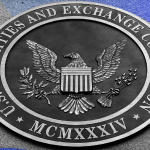Corporations are increasingly viewing Ethereum as a critical infrastructure component, leading to a surge in ETH allocations within corporate treasuries, according to Ray Youssef, CEO of finance app NoOnes.
Ethereum starts to look like a hybrid between tech equity and digital currency. This appeals to treasury strategists looking beyond passive storage,” Youssef told Cointelegraph.
Consolidated figures reveal top corporate Ethereum treasuries have purchased at least $1.6 billion worth of Ether (ETH) in the past month. Data from BitMine, chaired by Fundstrat’s Tom Lee, shows holdings of 163,142 ETH, valued at [$480 million].
SharpLink Gaming, founded by Ethereum co-founder Joseph Lubin, leads corporate ETH holdings with over 280,000 ETH as of Sunday, totaling over [$840 million]. Significant acquisitions occurred recently.
Other major corporate purchasers acknowledged include Bit Digital (more than 100,000 ETH), Blockchain Technology Consensus Solutions (BTCS – holdings increased to 29,122 ETH following a [$62.4 million] raise), and GameSquare.
ETH’s Yield, Compliance Drive Institutional Appeal
Youssef cited ETH’s staking yield, programmability, and compliance-friendly roadmap as key factors making cryptocurrency appealing to “forward-looking companies, especially those already involved in the digital economy.”
He predicts Ethereum’s influence will continue to grow. “Ethereum increasingly becomes the digital rail for tokenized assets, stablecoins, and smart contract execution,” Youssef explained.
Most stablecoins and real-world asset (RWA) protocols are built on Ethereum or Ethereum-compatible chains. According to RWA.xyz, Ethereum dominates the RWA market with 315 projects valued at [$7.76 billion], commanding a 58.1% market share.
Youssef highlighted Ethereum’s dominance in tokenized US Treasurys as indicating the broader adoption potential for onchain debt, equity and yield products. “Ethereum provides the standards and liquidity for these instruments to thrive,” he noted.
Regulations Remain a Hurdle
Youssef acknowledged regulatory uncertainty remains a key barrier. Clearer guidance is needed on the classification of staking, accounting and tax treatment of staking rewards, and custody standards.
“Large corporations tend to move slowly because they can’t afford legal ambiguity,” explained Youssef. “Once those boxes are ticked, adoption will accelerate.”












